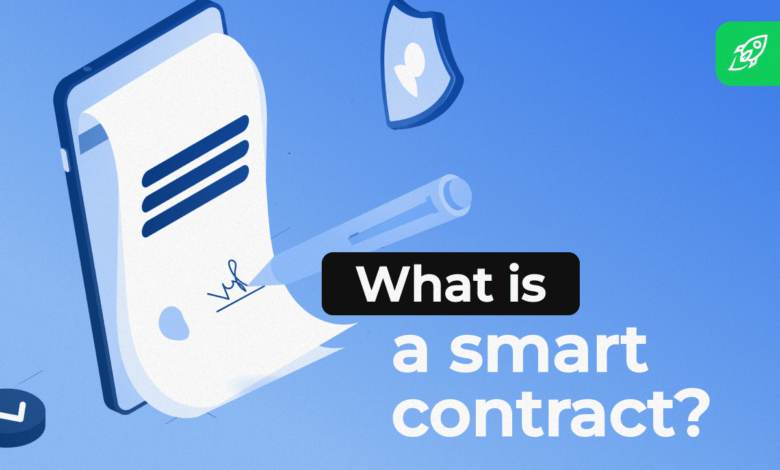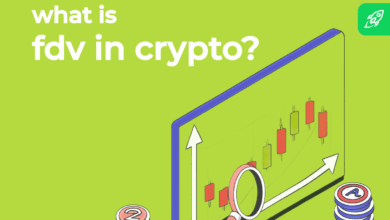What Is a Smart Contract, and How Does It Work?

In the evolving digital technology landscape, smart contracts have emerged as a transformative force, redefining how transactions and agreements are made in the digital age. These self-executing contracts, created on the foundation of blockchain platforms, combine the principles of traditional contract law with the efficiency, transparency, and security of decentralized ledger technology.
Whether you’re delving into the nuances of blockchain for the first time or are a seasoned crypto and blockchain enthusiast, this article offers a comprehensive insight into the world of smart contracts, from their foundational principles to their wide range of applications in various industries. Join me as I explore the intricacies of smart contracts, their development, and the innovative platforms that support them.
What Is a Smart Contract in Crypto?
Smart contracts are a revolutionary piece of technology that has garnered a lot of attention in the digital age. At their core, they can be described as self-executing contracts with the terms of the agreement directly written into lines of code.
In simpler terms, a smart contract is a digital agreement that automatically carries out its terms when certain conditions are met. The concept of “smart” comes from its autonomous and automatic nature — there’s no need for intermediaries.
Here are some of the key features that define smart contracts:
- Decentralized. Smart contracts operate on decentralized platforms, most commonly on blockchain networks.
- Transparent. All parties can view the terms and conditions.
- Immutable. Once a smart contract is launched, it cannot be altered, ensuring trust among parties.
How Do Smart Contracts Work?
Understanding the mechanics of smart contracts is paramount, especially considering the pace of digital innovations. Let’s delve deeper into the mechanism behind these innovative digital agreements.
Creation
- Defining Terms. At the heart of a smart contract is the agreement between parties. Developers, therefore, need to clearly and comprehensively outline terms and conditions. This encompasses everything from payment terms to potential penalties or rewards based on the performance of the contract.
- Programming Language. Developers often use specialized languages tailored for blockchain environments. Solidity is a popular choice for Ethereum, while other blockchains might have their own preferred languages.
Deployment
- Blockchain Selection. The choice of blockchain is pivotal. Ethereum is the most popular for its flexibility and widespread adoption, but others like Binance Smart Chain or Cardano also offer smart contract functionalities.
- Gas Fees. Deploying a smart contract isn’t free. On networks like Ethereum, developers pay ‘gas’ to compensate for the computational energy required to process and validate the contract.
- Verification. Before the smart contract goes live, it undergoes a verification process. This ensures that the code is free from vulnerabilities that could be exploited by malicious actors.
Execution
- Trigger Events. For a smart contract to execute its functions, specific events or conditions need to occur. These could range from date-specific milestones to the confirmation of an external event, such as receiving a product or a service.
- Autonomy. One of the defining features is that once conditions are met, actions are automatically executed without any external interference. This ensures transparency and fairness in transactions.
- Interactions with the External World. Often, smart contracts need to interact with real-world data (like temperature, stock prices, etc.). This is where Oracles come in. They serve as bridges, providing external data to smart contracts.
Benefits of Smart Contracts
Smart contracts are one of the cornerstones of blockchain technology and crypto development. Here are just some of the benefits they offer to both users and developers.
- Transparency: Every transaction and term is visible to all parties involved, ensuring everyone is on the same page.
- Immutability: With the code being unchangeable after deployment, parties can be confident that terms won’t shift unexpectedly.
- No Middlemen: Traditional contracts often involve lawyers, notaries, or other intermediaries. Smart contracts streamline processes by bypassing them.
- Reduced Risk of Fraud: Automated checks and balances within the code minimize the risk of fraud.
- Instant Transactions: In many cases, smart contracts allow transactions that used to take days to be settled in minutes.
- Elimination of Manual Processes: Human errors and inefficiencies are reduced as processes become automated.
- Cryptography: Smart contracts utilize advanced cryptographic techniques to ensure data integrity and safety.
- Consensus Protocols: Before any changes are finalized, they need to be validated by multiple parties in the network, which significantly boosts security.
- Borderless Operations: Smart contracts are not bound by geographical restrictions. An entity in the U.S. can easily engage with another in Japan without traditional hurdles.
Smart Contract Use Cases
Smart contracts have revolutionized the way transactions occur in the digital age. With the advent of digital currencies and blockchain platforms, the possibilities have expanded exponentially. The use cases for smart contracts span a wide range of different industries and applications. Some of the notable use cases include:
- Real Estate Transactions. Smart contracts streamline property sales by automating processes like title transfers and escrow services, significantly reducing transaction costs.
- Supply Chain Management. They ensure transparency and traceability in the supply chain, allowing parties to verify the origin and handling of goods throughout their journey.
- Decentralized Applications (dApps). These blockchain applications operate on public blockchains without the need for intermediaries. They use smart contracts to govern their operations and handle digital assets.
- Digital Asset Management. Whether you’re buying, selling, or transferring digital assets, smart contracts ensure that all terms are met before the transaction is finalized.
- Legal Contracts. Traditional legal contracts can be costly and time-consuming. Smart contracts offer a more efficient alternative, automatically enforcing terms and conditions without the need for a third party.
This wide variety of applications showcases the versatility and potential of smart contracts across various sectors.

What Is an Example of a Smart Contract?
To better understand smart contracts, let’s consider an analogy.
Imagine a vending machine. You input a coin, and the machine releases a snack. Here, the vending machine acts similarly to how smart contracts function. When certain conditions are met (inserting a coin), an action occurs (releasing a snack).
Now, let’s look at a more concrete example related to real estate transactions:
- Creating the Contract. A buyer and a seller agree on a price for a property. They use a smart contract writing platform to define terms. The contract might state that upon payment confirmation, the ownership of the property will be transferred to the buyer.
- Storing on the Blockchain. Once created, this collection of code, or the smart contract, is stored on a blockchain, ensuring it’s in a secure, decentralized network.
- Execution. The buyer sends the agreed amount in digital currency to the smart contract. The smart contract executes its terms, verifying the payment and automatically transferring ownership rights to the buyer.
- Completion. Both parties receive confirmation, and the transaction is complete. All of this happens without traditional intermediaries, reducing costs and increasing efficiency.
Throughout this process, the smart contract code ensures the transparency and trustworthiness of the transaction. Thanks to the blockchain’s decentralized nature, all parties can confirm and verify the contract’s details and execution.
FAQ
What blockchains use smart contracts technology?
Several blockchains have adopted the innovative distributed ledger technology to facilitate smart contract execution. Being specifically designed for creating and deploying blockchain-based smart contracts, Ethereum is arguably the most popular smart contract platform. But it’s not alone in this endeavor.
Blockchains like Binance Smart Chain, Cardano, Polkadot, and Tezos also support smart contract applications. These platforms have recognized the transformative potential of smart contracts, especially in automating and securing processes from financial transactions to complex business operations. As technology evolves, we can expect even more blockchains to incorporate smart contract functionalities, each bringing unique features and benefits to the table.
What is a smart contract developer?
A smart contract developer is an individual skilled in smart contract development and adept at writing, testing, and deploying these computer programs on blockchain platforms. Apart from writing and deploying contracts, a significant responsibility of a smart contract developer is also vetting smart contract security. They ensure that the contract operates as intended and is free from vulnerabilities that might be exploited.
Smart contract developers understand the intricacies of smart contract languages like Solidity or Vyper (commonly used for Ethereum) and can create smart contracts tailored to specific needs. Their role is crucial in ensuring that the smart contract’s code is both secure and efficient, as any flaw can lead to financial losses or other unintended consequences.
With the rise in the adoption of smart contracts across various sectors, the demand for knowledgeable and experienced smart contract developers has surged, making it a highly sought-after profession in the realm of blockchain and decentralized technologies.
What is a smart contract address?
A smart contract address is a unique identifier associated with a specific smart contract on a blockchain. Much like how a traditional account or wallet has an address where one can send or receive digital assets, a smart contract address allows users and other contracts to interact with it. Whenever a smart contract is deployed onto a blockchain, it is assigned this distinct address. Through this address, one can trigger functions, send funds, or make queries related to the contract.
It’s essential to ensure accuracy when dealing with these addresses, as the immutable nature of blockchains means that interactions, especially transactions, are irreversible. This address acts as the gateway for all interactions with the contract, making it a fundamental aspect of the smart contract platform.





